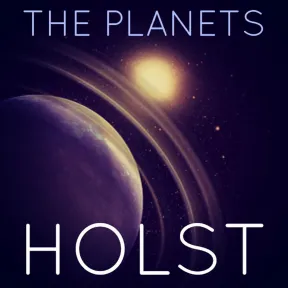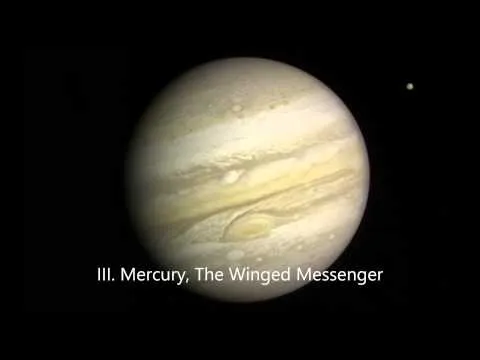
Gustav Holst had received modest success as a composer, but after his 1913 choral composition The Cloud Messenger was met with lukewarm reviews, Holst opted to take a trip with his friends Clifford and Arnold Bax. During the trip, Clifford Bax introduced Holst to astrology and the composer became fascinated with horoscopes, giving his friends readings throughout the rest of his life. This is often noted as the inspiration that led to Holst’s undertaking of a symphonic work that would later make him a legend.
Between the years of 1914-1916, Holst wrote six compositions for four-hand piano and later, a seventh for organ. The pieces were all based on the known planets of the solar system, excluding Earth. Noting the scope and magnitude of the planets, Holst opted to expand his “series of mood pictures” to full orchestral pieces. The results showed the influences of Schoenberg, Stravinsky, and Debussy and soon began to achieve acclaim through private concerts. It was not until 1920 that the full work had its first debut, and The Planets became an instant success.
Holst labels each section after a planet and its astrological character, but the musicality of each section seems to be more geared towards the influence of the planets on the psyche than on the Roman deities. Perhaps the most well known sections of the work are Jupiter and Mars. Jupiter has a memorable theme that was later adapted as a hymn tune. Mars has had a controversial history, with movie composers John Williams and Hans Zimmer utilizing similar motifs in their work. In fact, the estate of Gustav Holst sued Hans Zimmer due to the similarities of his soundtrack to Gladiator to the Mars movement.
You don’t see Pluto? That’s because it hadn’t been discovered when Holst wrote The Planets. Earth, the Sun, and the Moon are also not incorporated in the space journey, mainly because they are not part of traditional astrology.
The Planets has proved to the be seminal work of Gustav Holst, though he himself did not consider it to be his best. The modest composer did not fully appreciate the fame that accompanied the composition’s rave reviews, often greeting autograph seekers with a typed page explaining his refusal to grant their requests. Nevertheless, The Planets is the vital work in the legacy of Gustav Holst and is a key orchestral work in the 20th century canon.
